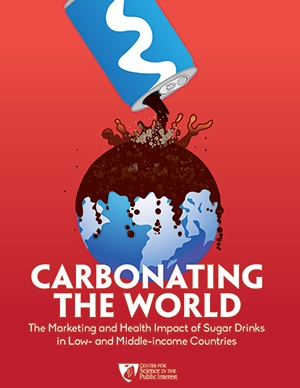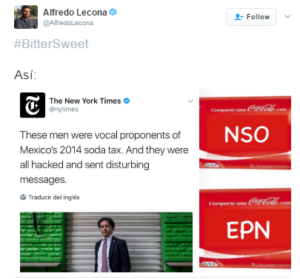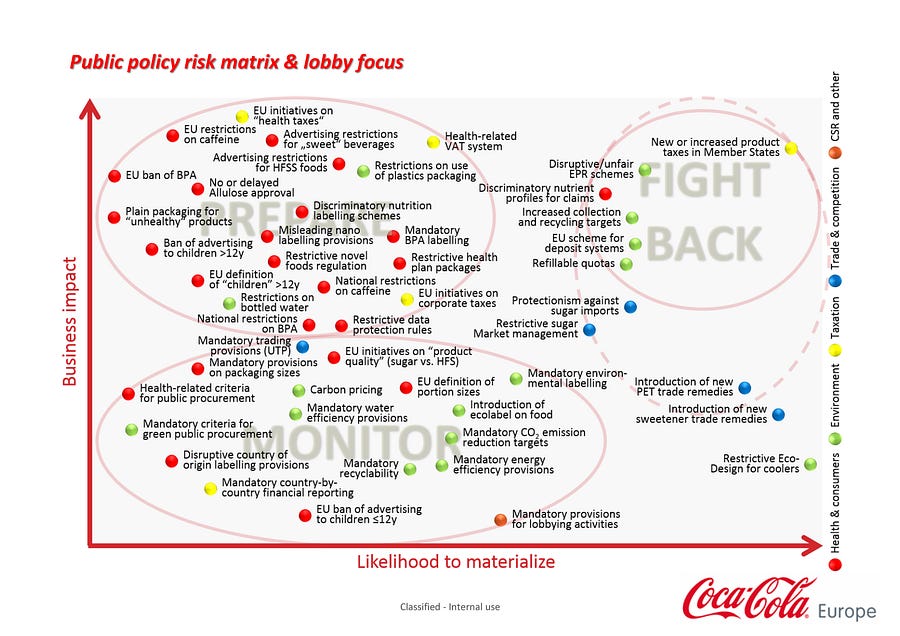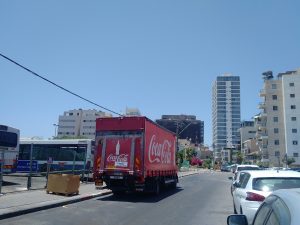The NY Times’ blockbuster investigation: Big Food in Brazil
The article, which starts on the front page and continues to another two full pages and more, is headlined How Big Business got Brazil Hooked on Junk Food.
It’s mostly about how Nestlé (no relation) recruits women in low-income countries to sell the company’s products from small mobile carts.
Here are a few quotes:
- Nestlé’s direct-sales army in Brazil is part of a broader transformation of the food system that is delivering Western-style processed food and sugary drinks to the most isolated pockets of Latin America, Africa and Asia. As their growth slows in the wealthiest countries, multinational food companies like Nestlé, PepsiCo and General Mills have been aggressively expanding their presence in developing nations, unleashing a marketing juggernaut that is upending traditional diets from Brazil to Ghana to India.
- Sean Westcott, head of food research and development at Nestlé, conceded obesity has been an unexpected side effect of making inexpensive processed food more widely available. “We didn’t expect what the impact would be,” he said.
- Ahmet Bozer, president of Coca-Cola International, described to investors in 2014. “Half of the world’s population has not had a coke in the last 30 days. There’s 600 million teenagers who have not had a coke in the last week. So the opportunity for that is huge.”
- “What we have is a war between two food systems, a traditional diet of real food once produced by the farmers around you and the producers of ultra-processed food designed to be over-consumed and which in some cases are addictive,” said Carlos A. Monteiro, a professor of nutrition and public health at the University of São Paulo. “It’s a war,” he said, “but one food system has disproportionately more power than the other.”
- [From Felipe Barbosa, a Nestlé supervisor:] “The essence of our program is to reach the poor,” Mr. Barbosa said. “What makes it work is the personal connection between the vendor and the customer.”
- But of the 800 products that Nestlé says are available through its vendors, Mrs. da Silva says her customers are mostly interested in only about two dozen of them, virtually all sugar-sweetened items like Kit-Kats; Nestlé Greek Red Berry, a 3.5-ounce cup of yogurt with 17 grams of sugar; and Chandelle Pacoca, a peanut-flavored pudding in a container the same size as the yogurt that has 20 grams of sugar — nearly the entire World Health Organization’s recommended daily limit.
The article is worth the read. Or see the 3-minute video for a quick summary. It also comes with a nifty interactive map of world obesity.
Politico Pro Agriculture asked Nestlé for a comment (this may be behind a paywall):
A Nestlé spokesperson defended the company while acknowledging the deeper childhood obesity problems currently plaguing Brazil. “We are disappointed by the New York Times’ biased approach in this article, which we believe does not accurately reflect the breadth and reality of our product portfolio in the context of the public health issues impacting the people of Brazil,” the spokesperson said. “However, we do agree that the real and serious issues raised in the article should be discussed in a balanced and constructive way that focuses on practical solutions.”
Resources
Here’s the article en Español.
And here it is em Português.
Take a look at Center for Science in the Public Interest’s report on Carbonating the World, which covers much of the same territory for Coca-Cola. In the meantime, subsequent articles in this series are promised for soft drinks and fast food.








